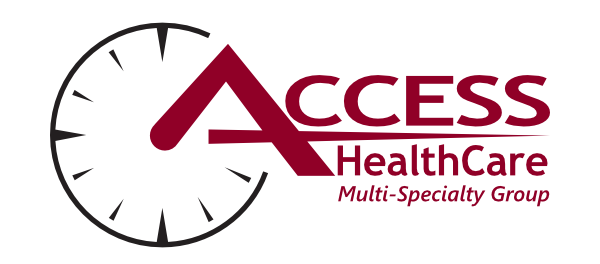As we age, our health needs change, and regular screenings become crucial for early detection and prevention of serious conditions. By the time you reach 45, several critical health screenings should be part of your healthcare routine. These screenings, including colorectal cancer tests, are vital for catching potential issues before they become severe, helping you maintain a healthier future.
The Importance of Colorectal Cancer Screening
Colorectal cancer is the third most common cancer diagnosed in both men and women in the United States. Fortunately, it is also one of the most preventable when caught early. Starting at age 45, it is recommended that all adults begin regular screenings for colorectal cancer, even if they have no symptoms or family history of the disease.
Colonoscopy: A Deeper Look
- What It Is: A colonoscopy is a procedure where a doctor uses a camera on a flexible tube to examine the inside of your colon and rectum.
- Why It’s Important: This test not only detects cancer but can also prevent it by allowing for the removal of precancerous polyps.
- Frequency: Every 10 years, if no polyps or other issues are found.
Stool-Based Tests (e.g., Cologuard): A Convenient Alternative
- What It Is: Cologuard is a non-invasive, stool-based test that detects DNA markers for cancer and blood in your stool. You can do it from the comfort of your home, making it a convenient option for many people.
- Why It’s Important: This test offers a less invasive alternative to colonoscopy, especially for those at average risk of colorectal cancer. It can detect potential issues early, allowing for prompt treatment and improved outcomes.
- Frequency: According to the American Cancer Society, if it’s been 3 years since your last negative Cologuard result, it’s time to screen again.
Learn More: Visit Cologuard’s website to understand how this test works and if it’s right for you.
Choosing the Right Test: A Personalized Approach
Choosing the Right Screening: A Tailored Approach with Access HealthCare
At Access HealthCare, we recognize that each patient’s health journey is unique. Our providers work closely with you to determine the most appropriate screening methods based on a thorough evaluation of your risk factors, medical history, and lifestyle choices.
- Family History Matters: If colorectal cancer runs in your family, a colonoscopy may be recommended as it offers a comprehensive examination and the ability to remove polyps immediately.
- Convenience Counts: For those at average risk without a significant family history, the ease of an at-home test like Cologuard may be preferable. This option allows you to stay proactive about your health without disrupting your routine.
Not sure which test is right for you? Contact Access HealthCare today to discuss your options with our expert team.
A Patient’s Journey: Meet Sarah, Age 45
Let’s take a look at Sarah’s story. Sarah is a 45-year-old mother of two who leads a busy life managing her career and family. With a family history of colorectal cancer, she knew it was time to prioritize her health. After consulting with her provider at Access HealthCare, Sarah decided to undergo a colonoscopy. The procedure was quick, and a few precancerous polyps were discovered and removed. Thanks to this proactive approach, Sarah significantly reduced her risk of developing colorectal cancer, giving her peace of mind and more time to focus on what matters most—her family.
Sarah’s story highlights the importance of making informed decisions about your health. Whether you’re like Sarah and have a family history of cancer, or you’re at average risk, the right screening can make all the difference.
Tailoring Screenings to Your Risk Factors
At Access HealthCare, we understand that everyone’s health is unique. Your screening schedule should reflect your personal needs, and our providers are here to help you navigate this process.
- Family History: If you have a family history of certain conditions, like colorectal or breast cancer, your doctor may recommend starting screenings earlier or doing them more frequently.
- Lifestyle Factors: Habits like smoking, alcohol consumption, and diet can increase your risk for various conditions. Your provider may adjust your screening schedule accordingly.
- Personal Health History: If you have chronic conditions like diabetes, heart disease, or previous cancer diagnoses, your screening regimen may need to be more aggressive.
Preparing for Your Screenings
Scheduling and Timing: Plan your screenings well in advance. Some tests, like colonoscopies, require preparation, such as fasting or taking laxatives the day before.
What to Expect: Understand what each screening involves and what you need to do to prepare. Your healthcare provider will give you detailed instructions to ensure accurate results.
Insurance Coverage: Preventative screenings are often covered by insurance, especially if they are recommended based on your age or risk factors. Be sure to check with your provider to confirm coverage.
Take Charge of Your Health with Access HealthCare
Turning 45 is a milestone in many ways, particularly when it comes to your health. Regular screenings, starting with colorectal cancer tests, are vital steps in protecting your future health. By combining these screenings with other recommended tests, you can significantly reduce your risk of serious health issues.
At Access HealthCare, we understand that each patient’s health journey is unique. By consulting with our experienced team, you’ll receive personalized advice tailored to your specific risk factors, lifestyle and health history. Our team will help you create a customized screening plan that fits your needs, ensuring you stay on top of your health as you age. We offer comprehensive services and support to make sure your preventative care is as effective and convenient as possible.
Take control of your health today. Schedule a consultation with Access HealthCare Multispecialty Group to discuss your personalized screening plan and take the first step toward a healthier future.
📍 Office Location: 2103 Graves Mill Road, Forest, VA 24551
📞 Contact Us: 434-316-7199
